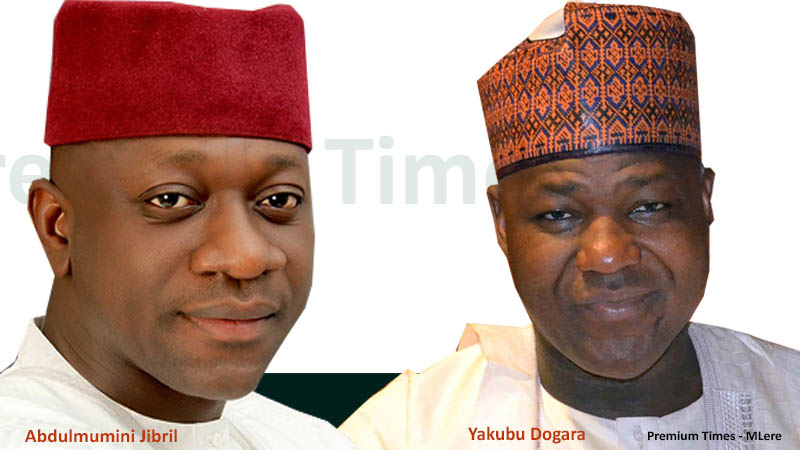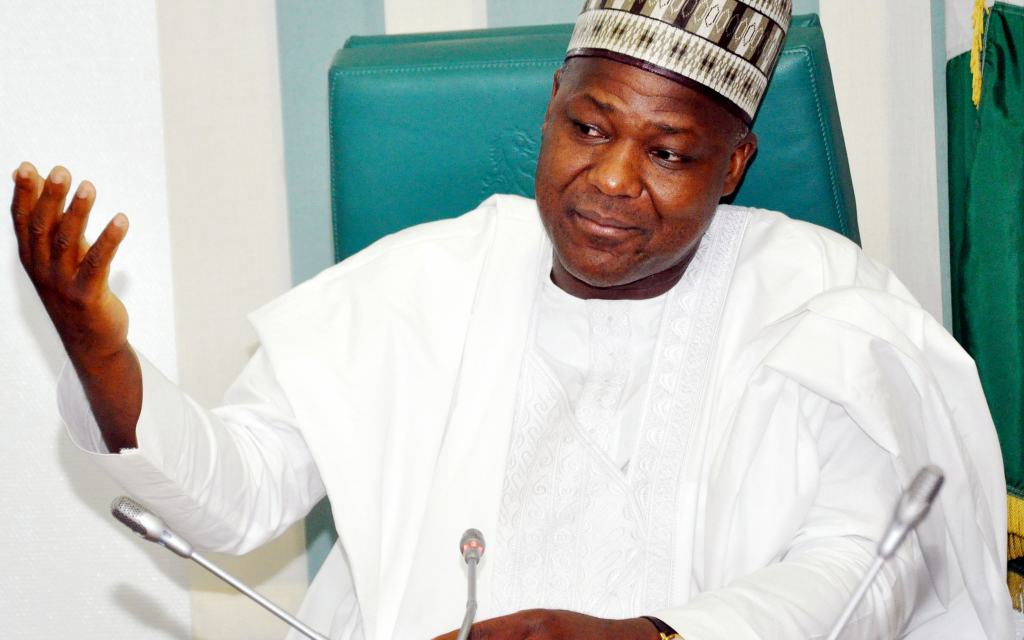
Since the inauguration of the Eighth National Assembly, its leadership has not been spared of scandals or controversies. It all started with the Senate whose leadership emerged by allegedly forging its own Rules with the alleged active collaboration of the immediate former Clerk of the National Assembly. Beside this particular forgery case that is already in court, the President of the Senate, Bukola Saraki, also has another case to answer at the Code of Conduct Tribunal which borders on his failure to allegedly declare some of his assets on the Assets Declaration Form for public office holders.
All this while, Speaker Yakubu Dogora and his colleagues at the House of Representatives were portraying themselves before the Nigerian public as being the true representatives of the populace and “good boys” of the ruling All Progressives Party leadership. In the first place, there was a sex scandal that allegedly involved three of the House members. And Speaker Dogora stoutly rose up in defence of those members requesting their accuser, the American Ambassador to Nigeria, to prove his accusation against the accused lawmakers beyond any reasonable doubt by providing the video evidence. The accuser has yet to come forward with the video evidence as demanded by the House leadership and hence the scandal seems to have died a natural death.
And suddenly from the unlikely quarters comes the mother of all scandals: budget padding, which was not entirely new to the Nigerian populace. But what is unique about this particular scandal is that Dogora and three other principal officers of the House allegedly sought to corner for themselves, according to the former Chairman of the Committee on Appropriations, Abdulmumin Jibrin, about N40bn out of the N100bn earmarked for the whole National Assembly members under the guise of some controversial constituency projects.
Instead of being remorseful of his actions, Dogora reportedly threw the bombshell saying that budget padding was not a crime known to the Nigerian constitution using his background as a lawyer. And on that basis, he won’t resign his appointment or step down from his position as the Speaker of the House of Representatives.
Actually, it is too late for keen watchers of Nigerian politics to blame Dogara. This is because the man has been part of the National Assembly politics, whose members have developed very thick skins to scandals and controversies. Public outcries against appropriating jumbo salaries/allowances to themselves have not moved them to change their ways all these years. Up till date, the budget details of the National Assembly are still shrouded in secrecy. And to Dogora, since he is not a first timer at the Lower House, he was already used to these scandals. To him, therefore, this new scandal of which he is the arrow-head may be one of such that will soon fizzle out provided he can procure a controversial vote of confidence from a majority of his colleagues in the House. Yes, we use the word procure because an attempt to get the approval of most of his colleagues to maintain his leadership position in the House may not go for free. In fact, his accuser- Jubrin, has also alleged that $20,000 was being allegedly distributed to the House members through one of his allies for this particular purpose.
And to underscore the gravity of the alleged offence, Jubrin chose to call it “reckless insertions” because of the fact that the act had gone overboard this time round to the extent that some ministries couldn’t recognise their own budget estimates when they were called upon to defend their estimates. Their budget estimates had been completely transformed by these alleged reckless insertions which eventually caused untold delay in the passage of the 2016 budget and consequently caused further delays in its cash-backing. And it is so bad that up till Monday, August 8, 2016, some MDAs had yet to receive any form of cash backing of their capital votes even though they had been given approval to commence the procurement process for their respective capital projects. That is to show the extent of damage that these “reckless insertions” had done which have also compounded the problem of hunger in the land. The executive may have its own share of the blame, but the main cause of the problem is traceable to the legislature’s door-steps.
The Nigerian public is now watching the Presidency and the leadership of theAPC whether they will allow the security agencies to do their jobs by allowing them to investigate the matter with a view to determining whether Jubrin is only crying foul over a non-issue just because he was relieved of his juicy position or he actually has a case that he can prove against the suspected members of the House leadership. And if the party decides to treat the scandal as an in-house issue, the public and the international community are still watching. They are watching a government whose main cardinal point is fighting corruption. One thing is clear, unless when called upon to give account of their stewardship, most Nigerian public office holders do not feel any sense of moral burden to resign their appointments or positions no matter the height of the accusation levelled against them. Name the crime, unless when the law is allowed to take it rightful course, a Nigerian office holder or a politician in particular usually does not feel obliged to show any moral burden to resign his appointment as may be demanded by public opinion. And so the Speaker’s stance on the scandal demonstrates the attitude of a typical Nigerian politician when confronted with a similar issue. Of course, this lackadaisical attitude has been part of our home-grown democracy unless the current administration is not ready to allow this unfortunate trend to continue as part of the business as usual.
Even before the present economic recession, the National Assembly has been inundated with public outcries denouncing their ostentatious ways of life and their opulent lifestyles in the face of a majority of Nigerians living in abject poverty and penury. Little did we know that budget padding is another illicit way of siphoning the nation’s treasury in billions of naira. But these federal legislators seem not to bother or yield to these public outcries. They seem to have no shame as long as they can secure their seats by all means. Ordinarily, this kind of scandal that is trending now will not play out itself into the public domain. It is therefore our prayers that God Himself will rise and defend the rights of the downtrodden masses of this nation. But before this eventual divine intervention which may come as the last resort, we expect the government to play its constitutional roles as the custodian of rules and order in a well-organised society and in the process ensure the promotion of true values or good culture in public service and the society at large.
Unless that is done, we may just be moving in circles- a state of motion without appreciable movement towards our desired goal/destination as a nation.
This nation needs leadership by example. But alas, we regret to remark that our National Assembly members over the years have been falling short of this lofty expectation that ought to be the norm and not anything close to extraordinary. It is high time we began to copy good democratic values from other societies that are doing well in the art and act of good governance. And the time to start is NOW!
Olakunle, the General Secretary, National Prayer Movement, Abuja, wrote in via gbemigaolakunle@yahoo.co.uk
Punch
END




Be the first to comment